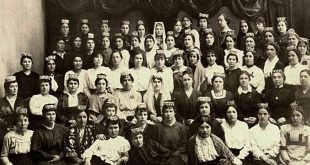This dissertation explores questions of religion, law and gender in contemporary Delhi. The dissertation is based on eighteen months of fieldwork that the writer conducted in four types of Muslim family law institutions: sharia courts (dar ul qaza institutions), women’s arbitration centers (mahila panchayats), a mufti’s authoritative legal advice (fatawa), and a mufti’s healing practice.
All of these institutions adjudicate cases and attend to problems that fall under the definition of “Personal Law.”
According to the Indian legal system, Personal Law covers matters of marriage, divorce, maintenance, inheritance, succession, and adoption. Within the state’s legal system, secular judges adjudicate Personal Law cases according to a codified version of the religious law of the disputants. Although the institutions that writer studied hear cases that fall within the sphere of Personal Law, and are thereby shaped by the Indian state’s legal structure, they are run by Muslim clerics and lay Muslims rather than by lawyers, and their judgments are not considered binding by the state. Their judgments cannot be appealed in the state’s courts nor can they be enforced by the coercive arm of the state. Detailing the methods of hearing and responding to cases particular to each of these institutions, the writer shows that each draws on and refigures a broader discursive Islamic legal tradition even as it works within and in dialogue with state law. The first major argument of the dissertation emerges from this analysis: although these institutions are technically extra-legal, together with the state institutions they constitute a form of legal pluralism and are, therefore, a significant part of the legal landscape for Delhi Muslims.
For historical and structural reasons the writer analyzes in the dissertation, the institutions he studied primarily adjudicate Personal Law matters. Women and men both approach these institutions with complaints, but women in particular have a high success rate. Women’s presentations of their cases and their troubles demonstrate that they approach these institutions for a variety of legal, religious, and strategic reasons with the specific aim of reconfiguring their domestic arrangements. The second argument the writer makes in the dissertation draws on this observation. The writer shows that these particularly Indian Islamic legal institutions are significant sites at which men and women negotiate domestic expectations and marital disputes. As in the state courts, the processes and outcomes of these discussions are rife with tensions and contradictions, but the modes and logics of mediation offer notably different possibilities than state courts can.
Together, these three main arguments–that these institutions constitute a single legal landscape along with the state’s courts even as they draw on and reconfigure Islamic traditions of dispute; that Muslim men and women approach these institutions for a variety of legal, religious, and strategic reasons; and that the organization of gender is central to the work of these courts–open up new ways of thinking about the ways in which law is constituted through religious and gendered norms in the context of postcolonial India.
 Ijtihad Network Being Wise and Faithful Muslim in the Contemporary World
Ijtihad Network Being Wise and Faithful Muslim in the Contemporary World

